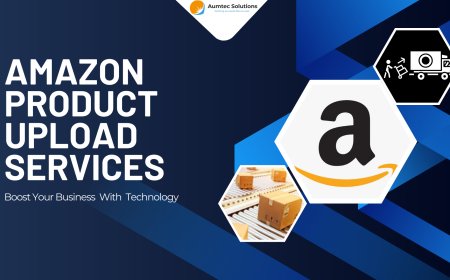In the modern era of digital transformation, artificial intelligence (AI) and machine learning (ML) have become pivotal in revolutionizing various industries. One of the significant applications of these technologies is in the development of route planner apps. By leveraging AI and ML, developers can create more efficient, accurate, and user-friendly route planning solutions. This article delves into the role of AI and ML in route planner app development, their benefits, and the factors affecting the route planner app development cost.
Enhancing Route Optimization
AI-Driven Algorithms
AI-driven algorithms are at the core of advanced route planner apps. These algorithms analyze vast amounts of data, including traffic patterns, road conditions, and historical travel times, to determine the most efficient routes. Unlike traditional routing methods, AI can adapt to real-time changes, providing users with the best possible routes based on current conditions.
Predictive Analytics
Machine learning models can predict traffic congestion, accidents, and other disruptions by analyzing historical data and real-time information. These predictive analytics allow route planner apps to offer proactive recommendations, helping users avoid potential delays before they even occur. This capability significantly enhances the reliability and efficiency of the app.
Real-Time Traffic Updates
Data Integration
AI and ML enable the seamless integration of real-time traffic data from various sources, such as GPS, traffic cameras, and social media updates. By aggregating and analyzing this data, route planner apps can provide users with up-to-the-minute information on traffic conditions, road closures, and other relevant factors.
Dynamic Route Adjustments
With the power of AI, route planner apps can dynamically adjust routes based on real-time traffic updates. For instance, if an accident occurs on the user's route, the app can quickly calculate an alternative path, minimizing delays and ensuring a smoother journey. This real-time adaptability is crucial for both businesses and individuals relying on timely arrivals.
Personalized User Experience
Customizable Preferences
AI and ML allow route planner apps to learn from user behavior and preferences. By analyzing past trips and user interactions, the app can offer personalized route suggestions tailored to individual needs. Whether a user prefers scenic routes, avoids toll roads, or prioritizes shorter travel times, the app can adapt to these preferences, providing a more customized experience.
Voice and Chatbot Assistance
Integrating AI-powered voice assistants and chatbots into route planner apps enhances user interaction. These features enable hands-free operation, allowing users to request route information, make adjustments, and receive updates through voice commands. This functionality not only improves convenience but also enhances safety by reducing the need for manual input while driving.
Cost Efficiency for Businesses
Fleet Management Optimization
For businesses, particularly those with delivery and logistics operations, AI-powered route planner apps offer significant cost-saving benefits. By optimizing routes for their fleet, companies can reduce fuel consumption, minimize vehicle wear and tear, and lower operational costs. Additionally, AI can help in better resource allocation, ensuring that the right vehicle is assigned to the right route, further enhancing efficiency.
Predictive Maintenance
Machine learning models can predict when a vehicle is likely to require maintenance based on historical data and real-time monitoring. This predictive maintenance capability helps businesses avoid unexpected breakdowns and costly repairs, ensuring that their fleet remains operational and efficient.
Environmental Impact
Emission Reduction
AI-driven route optimization not only benefits users and businesses but also has a positive environmental impact. By reducing travel distances and avoiding traffic congestion, route planner apps help lower fuel consumption and vehicle emissions. This contributes to a greener and more sustainable environment, aligning with global efforts to combat climate change.
Sustainable Logistics
For businesses, adopting AI-powered route planner apps can be part of a broader strategy for sustainable logistics. By minimizing their carbon footprint through efficient route planning, companies can enhance their reputation and appeal to eco-conscious customers and stakeholders.
When developing a route planner app with AI and ML capabilities, several factors influence the overall development cost:
Feature Complexity
The complexity and number of features integrated into the app significantly affect the development cost. Advanced features such as real-time traffic updates, predictive analytics, voice assistance, and personalized recommendations require sophisticated AI and ML models, increasing the development time and cost.
Data Integration
Integrating real-time data from multiple sources, including GPS, traffic cameras, and social media, adds to the complexity and cost of development. Ensuring seamless data integration and accurate analysis is crucial for the app's performance and reliability.
Platform Choice
The choice of platform (iOS, Android, or both) impacts the development cost. Developing for multiple platforms requires additional resources and development time, increasing the overall expense.
AI and ML Expertise
Developing an AI-powered route planner app necessitates specialized expertise in AI and ML technologies. Hiring experienced developers and data scientists with the required skill set contributes to higher development costs.
Maintenance and Updates
Post-launch maintenance and regular updates are essential for the app's performance and user satisfaction. Ongoing costs for server maintenance, data updates, and feature enhancements should be considered in the overall budget.
User Interface and Design
A user-friendly and visually appealing design enhances the app's usability and user experience. The cost of design depends on the complexity and quality of the user interface, with more intricate designs requiring more investment.
Third-Party Integrations
Integrating third-party services, such as map providers, traffic data sources, and payment gateways, incurs additional costs. These integrations enhance the app's functionality but contribute to the development expenses.
Conclusion
AI and machine learning have transformed the landscape of route planner app development, offering numerous benefits for both businesses and individuals. By enhancing route optimization, providing real-time traffic updates, offering personalized experiences, and improving cost efficiency, AI-powered route planner apps have become indispensable tools in modern transportation and logistics.
Understanding the factors influencing route planner app development cost is crucial for businesses and developers planning to invest in this technology. By carefully considering the complexity of features, data integration, platform choice, and the expertise required, stakeholders can develop robust and effective route planner apps that meet their needs and enhance the overall travel experience. As AI and ML continue to advance, the future of route planner apps holds even greater potential for innovation and efficiency.
























